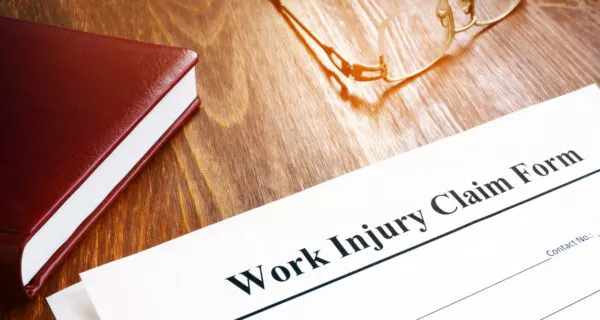The California legislature recently passed SB 1159, significantly expanding the governor’s executive order (N-62-20) of May 6 (“Executive Order”) regarding workers’ compensation and employer liability for COVID-19. The new law not only affirms the Executive Order’s presumption of employer liability for COVID-19-related workers compensation claims filed through July 5, but also extends it to claims filed from July 6, 2020 to January 1, 2023 and expands its applicability to include the COVID-19 claims of first responders and certain healthcare workers. Other key elements of SB 1159: Employers are required, within 30 days, to retroactively report positive tests back to July 6, 2020. This provision will determine if any presumption existed between then and the time the law passed. Recommended Next Steps for Employers If you have questions about SB 1159, please contact Michael Brown at [email protected] or 949-636-8128. Michael Brown is a Partner with our California-based team, bringing over three decades of senior in-house counsel experience in the area of business, employment, healthcare, compliance and privacy. Michael has served as in-house counsel to healthcare giants such as Tenet HealthSystems (hospitals), Apria Healthcare (home medical equipment, respiratory and infusion therapy); Clarient, a GE Healthcare company (clinical laboratories); and Edwards Lifesciences (medical device), where he also was a member of the AdvaMed Diagnostic and Compliance Committee that revised the AdvaMed Code of Conduct for the medical device industry. [1] A “rebuttable presumption” is a legal inference that something is true unless the other party is able to prove otherwise. In this case, the law presumes that COVID-19 was contracted in the work place unless the employer can prove otherwise.
The Executive Order created a rebuttable presumption[1] that any employee diagnosed with COVID-19 from March 19 to July 5, who had visited the workplace at the direction of their employer and received positive results within 14 days of such visit, was presumed to have contracted the disease on the job, and therefore, could file a workers’ compensation claim.
Under the new law, employers are required to report all employee COVID-19 cases (excluding first responders or healthcare workers). If that number exceeds a certain threshold within a 14-day period, an “outbreak” will be deemed to have occurred, and the employer will face additional liability if it failed to report such information or take appropriate precautions.
For employers with 100 or fewer employees, an “outbreak” occurs when four or more people test positive in a “specific place of employment.” For employers with more than 100 employees, an “outbreak” occurs when 4% or more of all employees have contracted COVID-19 within 14 days. An “outbreak” may also be declared if the location is closed by a public health agency for COVID-19.
The presumption of employer liability will not be the same across all work groups; rather, it will depend on the types of work performed by employees and the different levels of risk exposure each category may assume. For instance, it will be easier for employers to rebut the presumption of liability on claims made by employees who work in an area where they have no direct contact with any other employees. Also, it is important to note that the new law does not cover employees who work from home.
Once a claim is made, employers will have 30 days to dispute any claims made by healthcare workers and first responders, and 45 days for all other employees. This period will begin on the date upon which the employer learns of the COVID-19-related claim. To rebut the presumption of liability, an employer must show that (i) the claim was disputed in a timely manner, (ii) measures were instituted to reduce potential transmission of COVID-19 in the workplace, and (iii) the claimant employee had “non-occupational risks” of infection.
Employers will be required to report positive test results to their claims administrator on a continuous basis in order to determine if an “outbreak” has occurred. Specifically, if the employer knows, or reasonably should know, that an employee has tested positive for COVID-19, the employer will need to report to their claims adjustor, in writing, via e-mail or facsimile, within 3 business days, the following information:
Failure to comply with the new law could result in civil penalties to employers of up to $10,000.
Employers should review and update their workplace health and safety practices to ensure that they are consistent with orders from the California Health Department, applicable OSHA regulations, and recommendations from the Center for Disease Control. Additionally, if and where possible, employers should separate work groups by building, facility and/or by the field in an effort to slow the spread of COVID-19 and minimize claims.
This publication should not be construed as legal advice or a legal opinion on any specific facts or circumstances not an offer to represent you. It is not intended to create, and receipt does not constitute, an attorney-client relationship. The contents are intended for general informational purposes only, and you are urged to consult your attorney concerning any particular situation and any specific legal questions you may have. Pursuant to applicable rules of professional conduct, portions of this publication may constitute Attorney Advertising.
